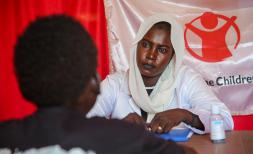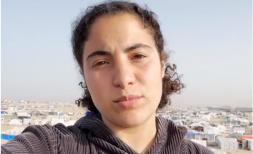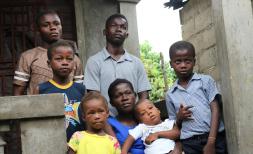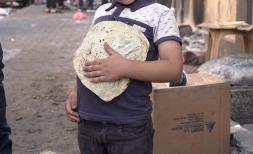Global Health and Vaccine Inequality: Measures for the G7 to achieve Health for All in 2022
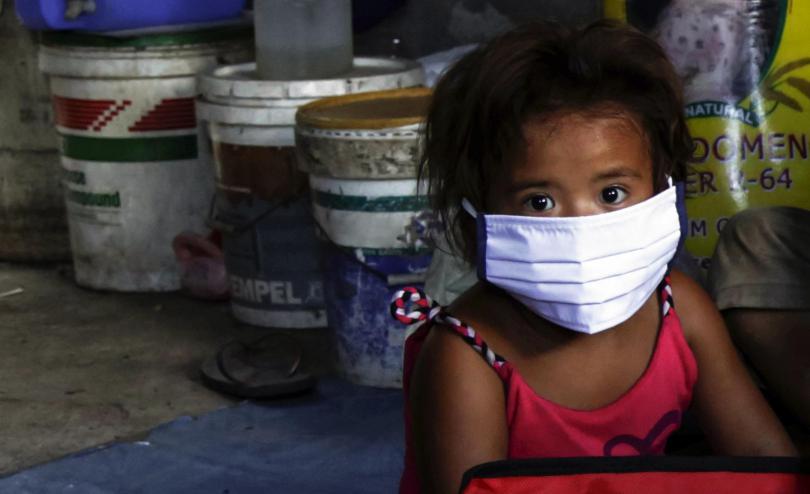
Today, the German government publishes its G7 agenda. Germany has held the G7 presidency since Jan. 1, 2022. In initial public statements as well as media reports, it seems that Germany will take over the priorities of the British, namely: the fight against global poverty, hunger and the education crisis, climate change and humanitarian crises as well as the fight against the Covid-19 pandemic. These are important plans, and yet one key area does not get enough attention here - the area of global health and vaccine equity.
Even two years after the pandemic began, industrialized countries have not (sufficiently) delivered on their promises of global solidarity, as evidenced by the still-present global inequitable distribution of Covid-19 vaccines. We have taken a close look at the challenges for global health and propose concrete measures across four thematic areas to the G7 to approach the goal of Health for All in the year 2022.
1. Health for All is only possible with strong and resilient health systems.
Due to weak health systems, many people in poorer countries are denied access to adequate health care. Covid-19 has continued to worsen this situation, and children, in particular, have been severely affected worldwide. Diseases that were previously in decline are making a resurgence. Malaria deaths, long in decline, have rebounded in 32 countries since the pandemic began. There is a real risk that child mortality will rise in 2022 for the first time in decades.
There is also often a lack of strong and sustainable health financing to enable health for all. And this is even more pressing, as an additional 100 million children have fallen into poverty in the last two years, a 10% increase since 2019.
That is why Save the Children is calling on the G7:
Use the political momentum to ensure long-term and sustainable health and nutrition financing and to support strong and resilient public health systems. This also asks of the G7 to invest at least 0,1% of their gross domestic product in health.
Strengthen health systems worldwide, for countries worldwide to continue delivering good-quality essential health services (EHS) for all free at the point of use, including routine immunization services - even in times of global health emergencies.
Prioritize health systems strengthening in all strategies and programmes and strongly support maternal, newborn and child health.
2. Equitable global distribution of vaccines and health services must finally become a reality.
At the risk of repeating ourselves: The pandemic will only be managed globally. Only if all people have access to vaccines and health services can we protect ourselves globally from the pandemic. Therefore, it should also be in the G7's own interest to contribute to a fair global distribution of vaccines.
In their Carbis Bay Declaration last June, the G7 set a goal "to vaccinate the world by getting as many safe vaccines to as many people as possible as fast as possible." Seven months later, we see that the G7 is still far from achieving its promise of equitable global vaccine distribution.
Achieving global vaccine equity must be a joint effort of the G7 countries.
That is why Save the Children is calling on the G7:
Mobilize financial and technical resources to reach the target of 70% of the population of all countries to be vaccinated against COVID-19 by mid-2022.
Fully resource global efforts to tackle COVID-19, including all G7 countries to provide for their fair share to financing the ACT-Accelerator, the global initiative to fight the pandemic, in 2022.
Urgently redistribute a proportion of further vaccine doses to poorer countries and make sure, vaccine doses get to countries in time (and way before they expire!) to ensure they reach everyone.
3. In the medium to longer term, poorer countries must no longer remain dependent on vaccines and drugs from industrialized countries.
One thing is clear: the transfer of vaccine doses would not be necessary if there were sufficient production capacities for vaccines and drugs (i.e. factories) worldwide - and especially in poorer countries. Currently, however, 99 % of vaccines used on the African continent get imported. Initiatives are already underway to expand production capacity on the African continent to the point where, by 2040 at the latest, 60% of all vaccines needed on the continent are aimed to be produced locally. These are important steps.
But the G7 countries should also do much more to build and expand production capacities in poorer countries.
That is why Save the Children is calling on the G7:
Prioritize investment and collaboration with emerging market manufacturers to boost manufacturing capacity in poorer countries.
Support governments to strengthen logistics, infrastructure, and supply chains and to integrate the delivery of Covid-19 health technologies through existing health systems in a way that optimally balances pandemic response with existing health priorities.
Strongly encourage pharmaceutical companies to agree to flexible licensing mechanisms, to allow local manufacturer to expand their supply of vaccines, drugs, and other essential health services. This also includes intellectual property waivers, non-exclusive licensing, technology, and knowledge transfers with manufacturers in poorer countries.
Provide stronger investments for a trained and motivated workforce to always be able to deliver quality health care.
4. Stronger funding and coordination of multilateral efforts - in global health and pandemic preparedness.
Strong health systems are not only incredibly important in times of global health crises, but also a prerequisite for governments and populations worldwide to prevent, prepare for, and respond to future health emergencies and other crises (so-called "pandemic preparedness"). Any investment in strong health systems is thus also an investment in pandemic preparedness.
We also know that investments in preparedness are lower than the costs that states might face due to the economic and social consequences of health emergencies. In addition, existing organizations that are mandated to help states prepare for, respond to, or prevent health emergencies, such as the World Health Organisation, remain massively underfunded.
Current debates about increasing assessed contributions by member states are at risk of failing, while additional funds for preparedness, which would require further funding from donor states such as the G7, are being discussed in parallel.
That is why Save the Children is calling on the G7:
Build on existing multilateral systems and organizations to drive global efforts for pandemic preparedness and response and avoid duplicating existing structures or creating new, parallel systems.
Ensure existing organizations that could help states prepare for, respond to, or prevent health emergencies, such as WHO, get sustainably and adequately funded to fulfill their mandate as the global coordinating body in global health.
Ensuring that funding for pandemic preparedness and response – including through a possible new fund – is additive to existing funding.
Beyond these very concrete recommendations for action, we, as Save the Children, call upon the G7, but also multilateral health organizations, to place children at the center of all their efforts.
Unfortunately, we have noticed that children's rights are neglected in many debates, including those on pandemic preparedness. Yet it is precisely their rights to education, health, and nutrition, that have been jeopardized by the pandemic. We therefore urge the G7 not to lose sight of the need to strengthen children's rights in the debates on global health and pandemic preparedness.

